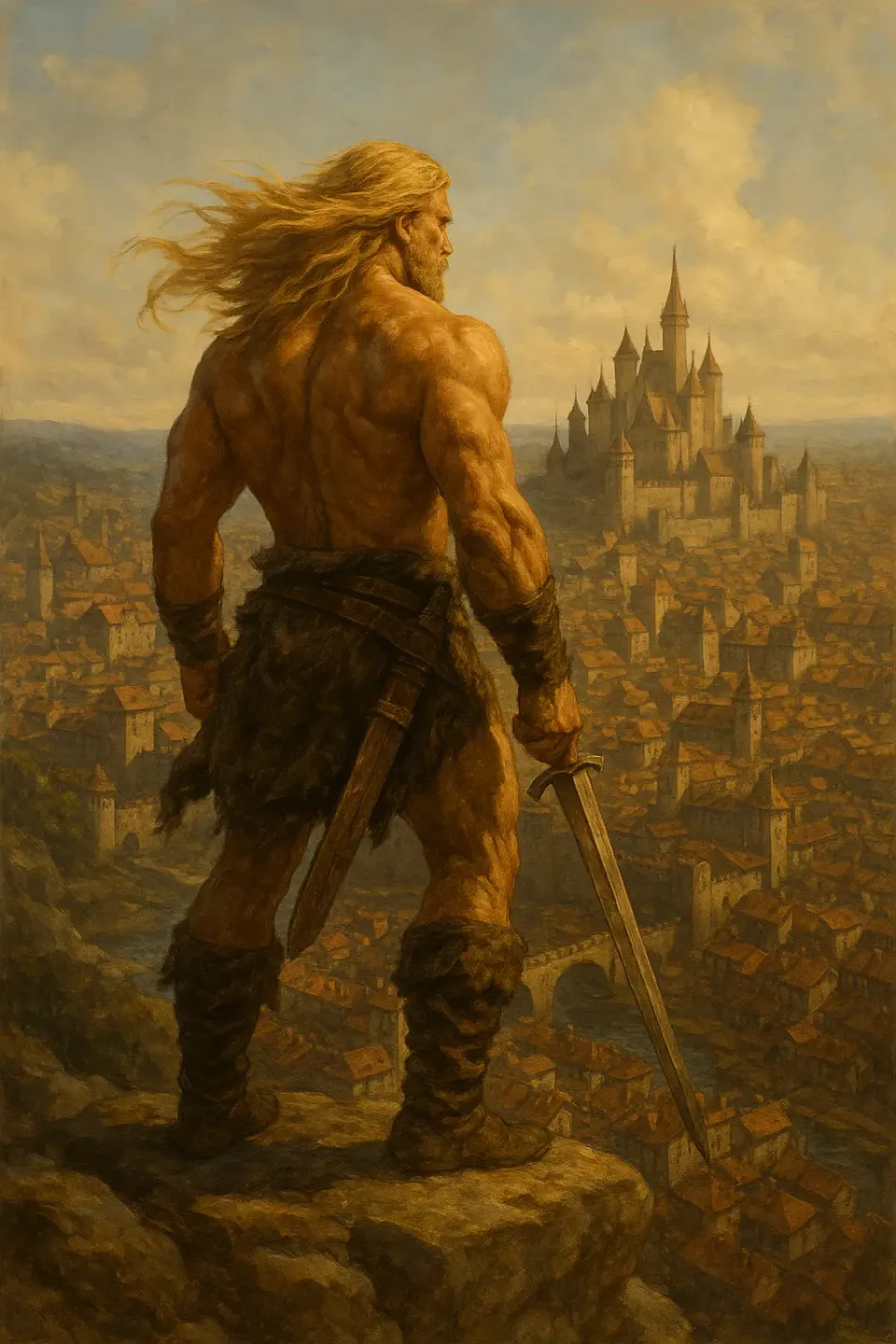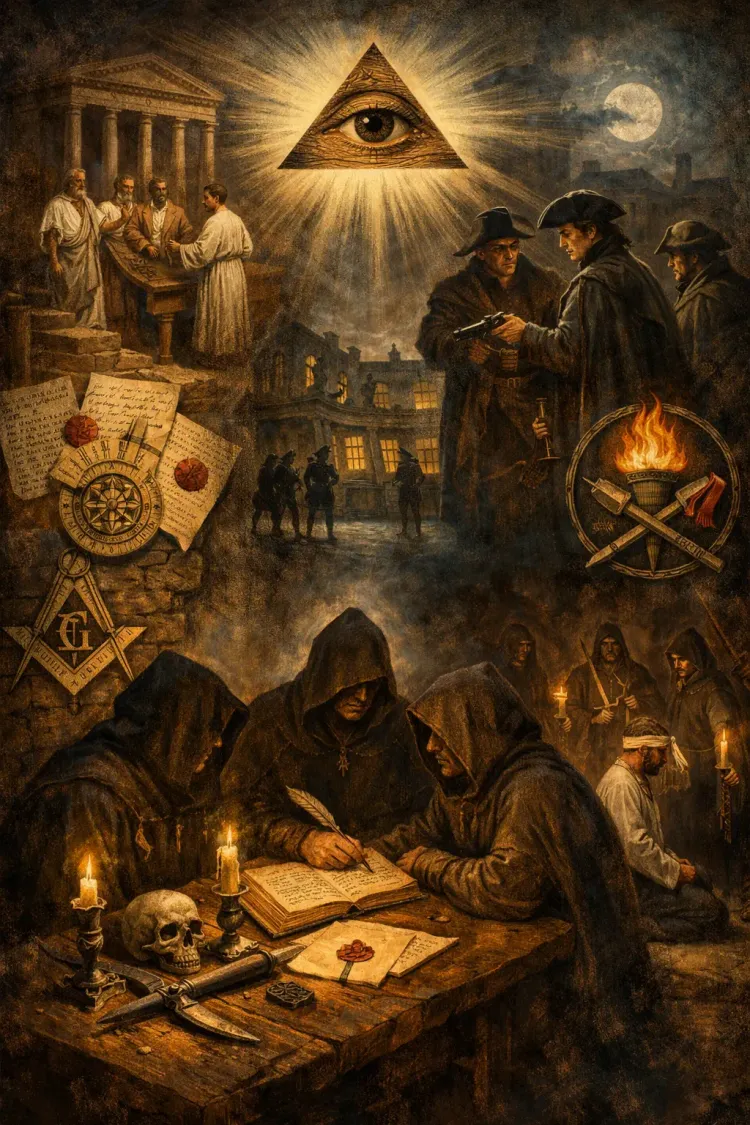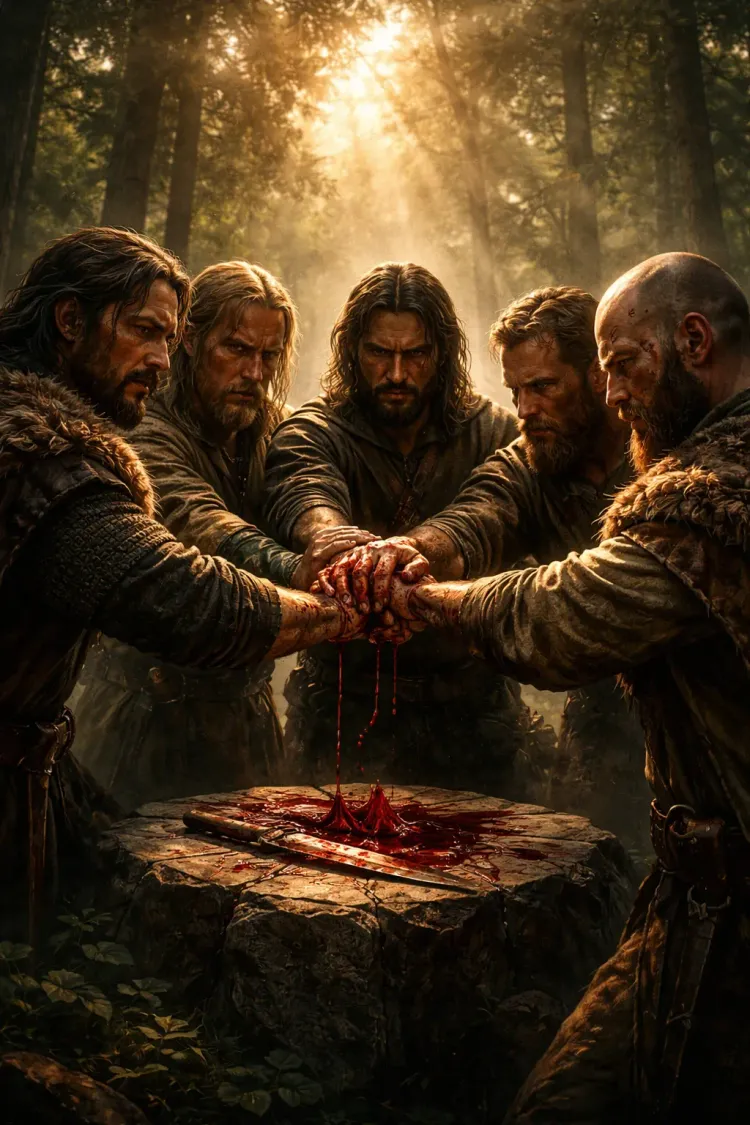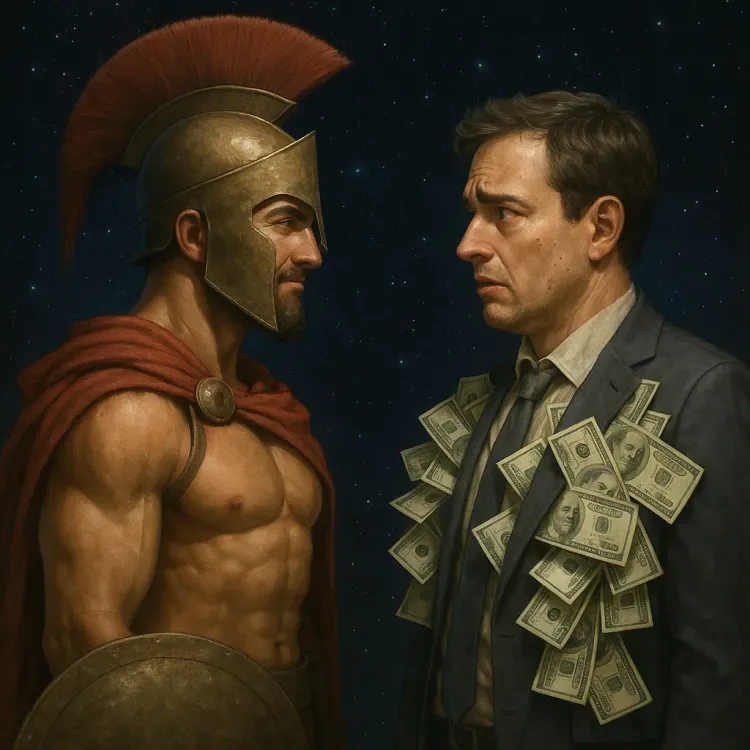Aristocratic Values

By Colonial
In an age suffocated by comfort, convenience, and mass conformity, the aristocratic man - the rare, ungovernable individual who wields arms, strategy, and sovereign will to carve his place in the world - stands apart. These are men of razor-sharp minds and bodies, contemptuous of ease, drawn to challenge, driven not by resentment but by the joy of conquest. In this spirit, they affirm Nietzsche’s declaration: “The true man wants two things: danger and play.” These are the only men who will ever control territory. As such, they are the only men will ever be free. Freedom technology doesn't just grant you freedom, you must take it. Most won't.
The Warrior and the Will to Power
Nietzsche’s philosophy celebrates the warrior spirit in its purest form. He writes,
A living thing seeks above all to discharge its strength — life itself is will to power.
This is the aristocratic ethos: it is not enough to live; one must exert strength, dominate, challenge. Master‑morality is the morality of the noble: “good” is powerful, beautiful, life‑affirming, while “bad” is merely common or weak. In this hierarchy, the strong define values, they do not seek approval or pity. To them, pity is not virtue but weakness. The indulgence of the defeated projected onto the strong. They would never want this kind of sentiment from others and they cannot offer it to others. Nietzsche celebrates warriors who fight not out of spite or metaphysical obligation but for the sheer pleasure of victory.
The free man is a warrior.
To this, Nietzsche adds an even sterner command: never give in to resentment. For resentment is the hidden poison of the weak. It's the backward‑looking fixation on what others have done, which corrodes strength and replaces will with complaint. The aristocratic man cannot harbor it, for to do so would be to live in chains forged by another. Instead, he transmutes every injury into energy, every defeat into fuel, affirming life by refusing to be shackled by bitterness.
In the 2002 film The Count of Monte Cristo, when the Count’s son is kidnapped and threatened with torture, the boy responds calmly: “Do your worst.” This is not defiance born of ignorance, but altogether aristocratic defiance. He refuses to yield respect and he takes joy in the challenge. The older men celebrate this fighting spirit not out of cruelty but out of admiration for the raw courage it represents. The Count goes on to tell the boy:
Life is a storm, my young friend… you must look into that storm and shout, as you did in Rome, ‘Do your worst… for I will do mine.’ Then the fates will know you as we know you.
It is the embodiment of warrior joy in adversity. It is Nietzsche’s condition that life is justified when facing unbearable challenge with strength, affirmation, and unconquerable will.
Even more, Nietzsche repudiates modern morality’s decadence and sympathy, calling for a path beyond slave morality toward the aristocratic. In On the Genealogy of Morals, he argues that the normative judgment of what is “good” originates from the powerful themselves rather than from some eventual utilitarian benefit or from a sense of Christian charity toward others, and certainly not from obedience to some set of canonized laws or values. Instead, they saw the work of their own hands and called it good. If it expanded them - their families, their culture, their territory - it was good. If it detracted from or was destructive to any of that, it was bad. Power, not for power's sake, but for the sake of those who wield it. Power, not for mealy material gain or simple pleasures, but for the growth of themselves and their people.
Tradition, Sovereignty, and the Aristocrat: Evola's view
Julius Evola, with his traditionalist lens, picks up a complementary thread. He regarded “aristocratic, martial, and imperialist” values as essential to preserving a higher order. The aristocratic spirit, for Evola, is metaphysical. It is primordial, transcending mere transactional forms of being. It is not an artifact of privilege but a manifestation of higher reality and hierarchical order. In his Revolt Against the Modern World, he mourns modernity’s collapse of ancient virtues and calls for a rebirth rooted in tradition. Hierarchy, for Evola, is not arbitrary but grounded in true merit: strength and integrity.
The West has lost the sense of command and obedience. It has lost the sense of contemplation and action. It has lost the sense of hierarchy, of spiritual power, of god-like men. It no longer understands nature ... They no longer know warriors, but only soldiers.
Evola asserts that only an aristocratic renewal can truly defeat bourgeois rot. It won't come from a populist uprising, but the emergence of a new warrior‑nobility that embodies authority, tradition, and excellence. Excellence here means more than superficial skill: it is the tireless pursuit of refinement, the demand to extract the highest possibility from one’s body, mind, and spirit. To seek excellence is to refuse mediocrity, to live in continual ascent, to measure oneself against the highest standards rather than the lowest common denominator. In this view, the aristocrat is not merely noble by birth but by will, discipline, and transcendence - his nobility proven by his unrelenting drive toward mastery. Only the aristocrat can be sovereign. Only the aristocrat shoulders the burden of defense of territory, for sovereignty is inseparable from territory and the will to defend it. Through securing territory, only the aristocrat can give the world a meaningful order wherein every man can reach as high as he dares.
Enough! to the "need" that binds men, like beggars, together in a common bond, to give them, in mutual dependence, the substance each lacks.
Ancient Royalty: Sword-Wielders
In the pre‑modern world, aristocratic privilege was inseparable from martial virtue. Young princes trained in the art of arms; they learned strategy, mounted warfare, and the discipline of the sword. Additionally, they were expected to prove themselves in sparring, duels, and battles; testing their courage and worth in the crucible of combat. In contrast, serfs wielded only farm tools. Sword and shield were effective weapons, but more than that, they were the instruments of authority, sovereignty, and leadership. These men sought to prove their work not in words, but in the clash of arms.
This division served more than functional purposes. It embedded an ethos: warrior‑nobility bore the weight of power and the responsibility of protection. Serfs served the land, the nobles served destiny, or as Nietzsche might put it, they created values rather than imitating them.
Modern Aristocrats and Digital Sovereignty
Today’s aristocrats no longer rely solely on sword or gun—they harness cryptography, encryption, VPNs, and private cryptocurrency. These are modern tools of self-sovereignty. Encryption is the sword of the digital age; privacy is the fortress. An aristocratic man understands them as extensions of martial logic. Just as a noble once mastered the sword and terrain, today he must master keys and permissionless protocols. Only by wielding these tools can one remain sovereign in a world increasingly surveilled, regulated, and democratized.
Yet even amidst these digital fortresses, the modern aristocrat must still cultivate martial skill in the flesh. Training in combat skills and tactics serves to remind him that sovereignty is not only abstract but embodied. Digital sovereignty without physical prowess is incomplete. For the noble warrior’s way, the aristocrat's way, demands mastery in all force-projecting technologies. Physical training wires the psyche toward discipline and aggression. Without which a skilled technologist is diminished to a mere "techie" or "nerd".
In addition to training in various strategic domains, the aristocrat must train his mind. This requires immersion in old books, the timeless sources of wisdom that sharpen judgment beyond the fashions of the present. He must embrace mental austerity, habits of restraint, solitude, and contemplation that harden the intellect as surely as combat hones the body. This often means forgoing simple pleasures or comforts in favor of a grander mission. He is ever-aware that sovereignty demands sacrifice, which is always a giving-up of one thing in favor of another. Resentful and jealous enemies will present to him easier paths of "fulfillment". Some will appear to take him closer to his goals, but in fact will shut him off from greater opportunities. If this man is to conquer, he must learn to recognize the deceit. Finally, he must set personal goals of self‑perfection and expansion, regarding the mind not as a vessel to be filled but as a weapon to be sharpened, disciplined, and directed toward dominion over himself and his world. His eye fixed on an ever-expanding future of possibilities and grandeur. More life for him and his.
Conclusion: Joyous Mastery Over Ease
In every era, from ancient courts to digital encryption, the aristocratic man persists: rare, formidable, self-directed. He stands opposed to ease, seeking refinement of body, mind, and will. He confronts resistance with joy, understanding mastery as both art and destiny. He affirms life through challenge and reclaims the metaphysical order wherein freedom is available to all men who strive to take it.
To cultivate aristocratic values is to embrace challenge, not for malice, but for mastery; not for envy, but for the noble joy of victory. Few will do this, but that has always been so. It is the way of hierarchy and nature. The pyramid is a cross-cultural traditional symbol for this reason. Through liberal democratic values and social structures, the modern world has inverted this pyramid. The beauty is that nature is on our side. The pyramid will be righted just as soon as men of aristocratic value arise and, by force of will, take their place. Many claim that the world is ruled by elites today, but this is cope. When the elites retake their sovereignty, you'll know. If you're one of them, you won't be able to walk away from this article and move on with your comfortable life. You'll have a need to take action. If you're not one of them, you'll willingly defer to their excellence. It'll be that good.





